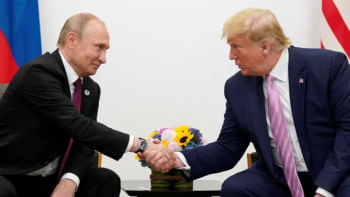‘Recognise genocide in Bangladesh in 1971’

Two cabinet members yesterday said friendly countries should play a pioneering role so that Bangladesh can get recognition for the genocide committed by Pakistan during Bangladesh's Liberation War in 1971.
Addressing a programme marking National Genocide Day, they said some of these friendly countries, who even opposed Bangladesh during the Liberation War, should also play a similar role in this regard.
The Ministry of Liberation War Affairs, Ministry of Foreign Affairs and Liberation War Museum arranged a discussion at the office of the Liberation War Museum.
State Minister for Foreign Affairs Shahriar Alam said due to political and other reasons, many countries supported Pakistan during Bangladesh's Liberation War. Now, these countries strongly push many other countries to establish democracy and rule of law.
"These countries talk about many internal matters of Bangladesh whether we want it or not. But now we will look for what they are saying for the recognition of the genocide in Bangladesh in 1971. They termed the ongoing events of Myanmar as genocide…"
These countries [the US and the UK] talk about many internal matters of Bangladesh whether we want it or not. But now we will look for what they are saying for the recognition of the genocide in Bangladesh in 1971. They termed the ongoing events of Myanmar as genocide. We urge them to play a pioneering role so that the genocide in Bangladesh gets international recognition.
"We urge them to play a pioneering role so that the genocide in Bangladesh gets international recognition," the state minister said.
Liberation War Affairs Minister AKM Mozammel Huq said good senses need to prevail among the world's leading countries about recognising the genocide of Bangladesh.
"They have recognised the genocide in Myanmar. But they don't recognise the genocide Bangladesh went through," he said.
He added that although the US government and the UK were against Bangladesh, citizens of these countries were in favour of Bangladesh during the Liberation War.
Both cabinet members said the government will continue its diplomatic efforts to earn recognition of the genocide in Bangladesh.
President of Asia Justice and Rights Patrick Burgess, also an international human rights expert, in his key presentation emphasised the need for forming an official truth and reconciliation commission on the Bangladesh genocide.
He said Bangladesh needed to be creative in sharing the story, and facts of genocide with the rest of the world.
"I find that people know very little about the Bangladesh genocide and they become interested when the facts surrounding it are presented to them."
"We can use theatre, artwork and more to keep the memory of what happened in Bangladesh in 1971 alive and share it with the rest of the world," he added.
Parliamentary Standing Committee on the Liberation War Affairs Ministry Chairman Shahjahan Khan, Foreign Secretary Masud Bin Momen, and Liberation War Museum Trustee Mofidul Hoque, among others, spoke at the event.
The country observed genocide day yesterday, commemorating the tragic night when the Pakistan army attacked the unarmed people of Bangladesh in 1971.
The Pakistani army initiated a crackdown on unarmed citizens on the night of March 25.
Between March 25 and December 16 when Bangladesh achieved independence, the occupation army killed 30 lakh people, raped over 2 lakh women, and forced over 10 million people to take refuge in India.

 For all latest news, follow The Daily Star's Google News channel.
For all latest news, follow The Daily Star's Google News channel. 



Comments